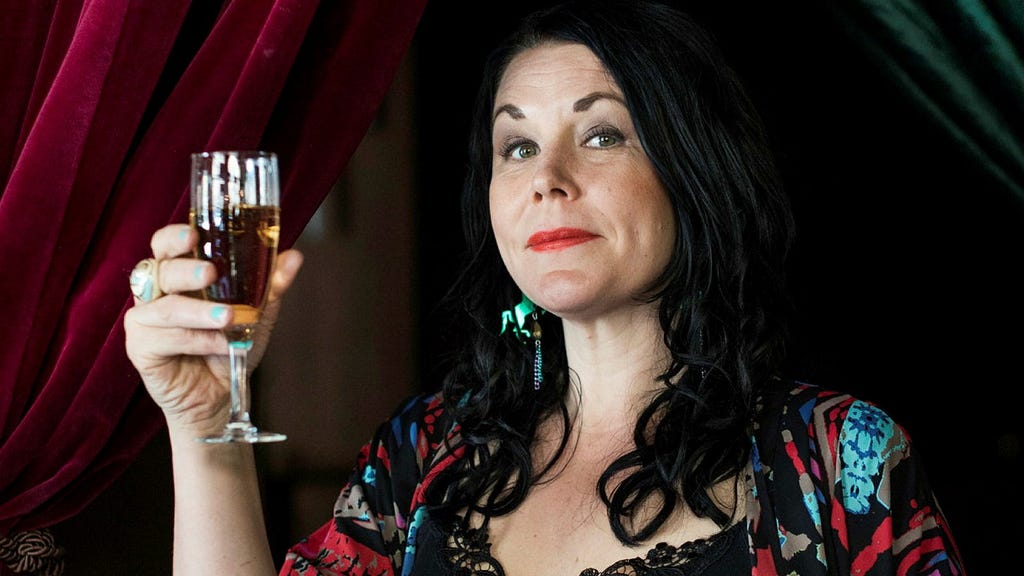Maria Sveland’s new book, ”Nu njuter Maggan” (Now Maggan Enjoys), explores the complexities and contradictions of motherhood in contemporary society. Sveland argues that mothers are burdened by unrealistic expectations and pervasive guilt, often stemming from societal pressures and judgment. She contrasts this with the more relaxed approach of her own mother, Maggan, who seemingly managed to balance work and family without succumbing to the same pressures. However, Sveland’s depiction of her mother treads a fine line between admiration and stereotype, portraying her as both a self-sacrificing martyr and a refreshing example of embracing imperfection.
A central theme of the book is the concept of martyrdom in motherhood, which Sveland links back to religious figures like the Virgin Mary. She questions whether the inherent conflicts of motherhood are exacerbated by cultural and religious influences, raising intriguing questions about the societal construction of motherhood. However, the book falls short of delving into these complex issues with the intellectual rigor they deserve, often resorting to generalizations and simplistic conclusions. Sveland’s analysis lacks depth, preferring to focus on the burdens of motherhood rather than exploring the transformative and fulfilling aspects of raising children.
Sveland’s narrative style blends personal anecdotes with broader societal observations, drawing heavily on her own experiences as a mother. While this personal approach can be engaging, it sometimes undermines her arguments. Her frequent references to the judgment and criticism she has faced from an unspecified ”omgivning” (surroundings) create a sense of persecution, but lack concrete examples to substantiate these claims. This reliance on personal experience, while relatable to some readers, may alienate others who haven’t shared similar encounters.
A significant weakness of Sveland’s argument is the inconsistent portrayal of fathers. She acknowledges the statistical disparity in parental leave and household labor between men and women, rightly pointing to the unequal burden placed on mothers. However, her depiction of fathers oscillates between generalizations and projections, failing to offer a nuanced perspective on their role within the family dynamic. At times, fathers are presented as almost entirely absent from the emotional labor of parenting, while at others, their apparent lack of guilt is used as a justification for mothers to shed their own self-imposed burdens. This contradictory approach weakens her argument for shared responsibility and undermines her call for greater empathy and understanding within families.
Furthermore, Sveland’s analysis lacks a clear and consistent logic. Her advocacy for mothers to prioritize self-care and reject societal expectations echoes the message of her previous works, emphasizing individual liberation and fulfillment. While this message resonates with contemporary trends of self-improvement and empowerment, it also aligns with the individualistic ethos of consumer capitalism. The emphasis on self-nurturing, while potentially beneficial for individual well-being, can be perceived as neglecting the collective responsibilities of parenthood and reinforcing a consumerist mindset.
Overall, ”Nu njuter Maggan” raises important questions about the challenges and complexities of motherhood in the 21st century. Sveland’s critique of societal pressures and expectations resonates with many mothers who grapple with feelings of guilt and inadequacy. However, the book’s reliance on personal anecdotes, overly generalized arguments, and inconsistent portrayals weakens its analytical power. While Sveland effectively captures the emotional struggles of modern motherhood, the lack of a more nuanced and well-supported analysis ultimately limits the book’s impact as a contribution to the ongoing conversation about gender roles, parenting, and societal expectations. The book’s strength lies in its emotional resonance and relatability for mothers facing similar struggles, but its weaknesses lie in its lack of intellectual depth and its failure to offer concrete solutions or a cohesive vision for a more equitable and fulfilling experience of parenthood for all.














